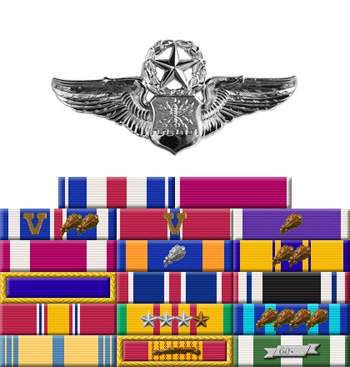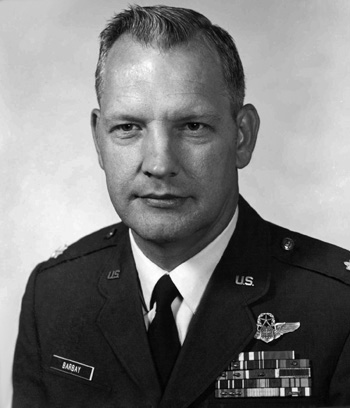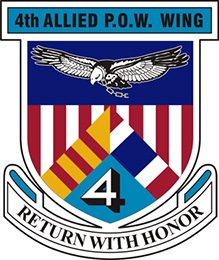
|
Lawrence "Larry" Barbay |
 |
|||
| Rank, Service | ||||
Lieutenant Colonel O-5, U.S. Air Force |
||||
| Veteran of: | ||||
|
||||
| Tribute: | ||||
Larry Barbay was born on October 17, 1934, in Baton Rouge, Louisiana. He was commissioned a 2d Lt through the Air Force ROTC program at Louisiana Tech on May 28, 1956, and went on active duty beginning February 13, 1957. Lt Barbay completed Undergraduate Navigator Training at Ellington AFB, Texas, in March 1958, followed by Electronic Warfare Officer (EWO) training at Keesler AFB, Mississippi, from March to November 1958. His first assignment was as an EWO flying RB-66 Destroyer reconnaissance aircraft with the 11th Tactical Reconnaissance Squadron at Yokota AB, Japan, from November 1958 to January 1960, followed by service with the 6091st Reconnaissance Squadron at Yokota AB from January 1960 to July 1962. Capt Barbay next completed B-52 Stratofortress Combat Crew Training, and he then served as a B-52 EWO with the 334th Bomb Squadron at Biggs AFB, Texas, until February 1966. He deployed to Southeast Asia in February 1966, and served as an EWO on EB-66 aircraft with the 41st Tactical Reconnaissance Squadron at Takhli Royal Thai AFB, Thailand, from February 1966 until he was forced to eject over North Vietnam and was taken as a Prisoner of War on July 20, 1966. After spending 2,420 days in captivity, Maj Barbay was released during Operation Homecoming on March 4, 1973. He was briefly hospitalized to recover from his injuries at Keesler AFB, and then received an Air Force Institute of Technology assignment to complete his Masters degree at Southwest Texas State University from August 1973 to August 1976. Col Barbay's final assignment was as commander of the Air Force ROTC detachment at Central Washington University in Ellensburg, Washington, where he served from August 1976 until his retirement from the Air Force on August 1, 1979. Larry Barbay died on January 28, 2010, and was buried at the Fort Sam Houston National Cemetery in San Antonio, Texas. |
||||
|
||||


